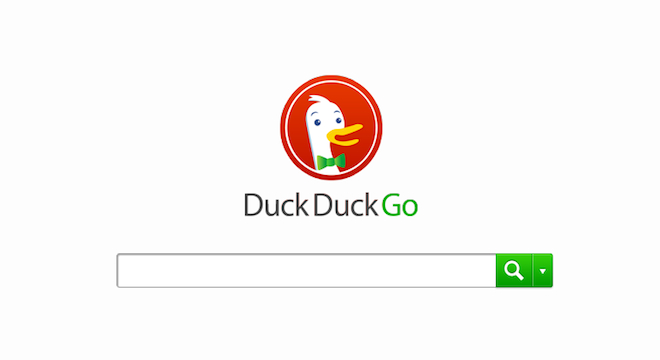Google’s core product — its web search engine — has been hit with a barrage of criticism for changes Google made in the way it displays search results, putting content from Google’s social network, Google Plus, up front and center, even when it doesn’t seem to make sense. Add to that concerns from users and regulators over Google’s new privacy policy, and Google search has had a difficult 2012 so far, to say the least.
In contrast, the fortunes of a relatively unknown search engine focused on privacy, called DuckDuckGo, have never been better.
DuckDuckGo, which promotes its simplicity and strict privacy protections over competitors, has experienced a record surge in traffic over the past three months, up 227 percent to nearly 1.5 million unique searches daily.
DuckDuckGo’s founder Gabriel Weinberg said that he knew the tide was turning when his four-year-old search engine saw a million searches per day on February 14.
“After we broke that record, we really started to hold that traffic,” he told TPM in a phone interview, pointing to DuckDuckGo’s annotated traffic results page.
In terms of U.S. search market, DuckDuckGo only accounts for an estimated 0.1 percent of all search traffic, according to results from tracking firm comScore. But it’s worth pointing out that fully half of DuckDuckGo’s traffic comes from overseas, mostly Europe, according to Weinberg.
Weinberg told TPM that the sudden flocking to his search engine in the past three months was reflective of a growing anti-Google fervor and renewed focus by searchers on protecting their Web privacy, but added a visual redesign of the DuckDuckGo website in mid-January 2012 didn’t hurt, either.
“What I think that did was enable a higher chance of users sticking on the site,” Weinberg told TPM.
And more DuckDuckGo home improvements are on the way: Weinberg revealed to TPM that the website plans this year to launch a distinct “News” results section specifically to show the latest information pertaining to searches, but in a way that doesn’t push down or exclude older, more informative links on the history of a subject.
“There will be a separate news block up at the top of the page instead of changing all the links on the whole page to be recent,” Weineberg said. He expects the news section to be launched “in the next month.”
Another big change coming: DuckDuckGo plans to launch redesigned mobile apps for iOS (iPhone/iPad) and Android devices within the next 5 months.
DuckDuckGo was launched in 2008, when Google’s stranglehold on the global search was reaching its current plateau.
Although Weinberg previously admitted to TIME Techland that privacy wasn’t at the forefront of his mind when he started the search engine, it’s since become DuckDuckGo’s centerpiece, with the company actively promoting the fact that it doesn’t capture any identifying information about a user from searches, unlike Google and Bing. It also doesn’t personalize search results whatsoever, unlike Google, which has been criticized for creating a “filter bubble” by showing different results for every user of its website, based on their prior searches and clicks.
That said, DuckDuckGo has received venture capital funding but makes money primarily through advertising next to search results, the same approach that fuels Google’s sprawling business. Specifically, DuckDuckGo puts a “sponsored link” to companies at the top of the results page after certain searches are performed. Google also engages in this practice.
Asked whether DuckDuckGo was wary of following Google’s path toward increasingly targeted advertising or launching other products such as a social network, Weinberg told TPM he was sure his company could avoid the pull.
“That’s not in any kind of future I can see at the moment,” Weinberg told TPM.









